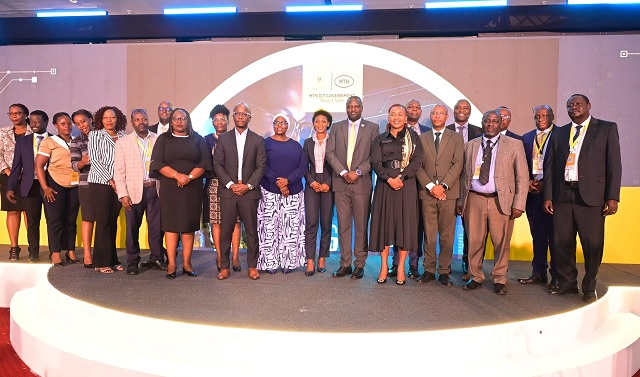
Kampala, Uganda | THE INDEPENDENT | On May 22, MTN Uganda convened a high-level round table in Kampala, partnering with the Ministry of ICT and National Guidance to sharpen the country’s digital ambitions. The event brought together senior government officials, ICT policymakers, and MTN executives to map out practical steps for implementing Uganda’s National Digital Transformation Roadmap (2023/24–2027/28).
The government’s digital blueprint, presented by Ambrose Ruyooka, Commissioner for Research & Development at the Ministry, asserts that Uganda’s existing infrastructure is sufficiently robust to support the roadmap’s objectives. The plan aims to harness emerging technologies to enhance economic competitiveness and improve citizens’ lives.
Aminah Zawedde, Permanent Secretary at the Ministry of ICT, framed the roadmap as a strategic guide to coordinate efforts across public and private sectors amid resource constraints. “It is the rallying point for optimizing scarce resources through cohesion,” she said.
Chris Baryomunsi, the ICT Minister, emphasized that the roadmap builds on the earlier Digital Uganda Vision, focusing on converting policy into tangible action. He highlighted the role of ICT within the current National Development Plan as a driver for livelihoods, job creation, and both import substitution and export growth.
Aligned with Uganda’s broader Ambition 2025 strategy—which targets leadership in digital solutions across Africa—the roadmap seeks to move beyond lofty goals towards operational momentum.
MTN Uganda’s CEO, Sylvia Mulinge, underlined the pivotal role of public-private partnerships in delivering inclusive, practical, and locally relevant digital development.
“Through this Round Table, we are deepening our partnership with government to co-create sustainable solutions that improve lives and enable Uganda’s digital vision,” she said.
The telco showcased a suite of advanced technology services—including cloud computing, the Internet of Things, managed networks, unified communications, and e-government platforms—aimed at enhancing public service delivery immediately.
Ibrahim Senyonga, General Manager of MTN’s Enterprise Business Unit, stressed the importance of these tools in building “what matters most to citizens” through secure infrastructure and smart government solutions.
Uganda’s ICT sector has emerged as a key economic driver, averaging growth of 14.8% and contributing 9% to national GDP, according to the roadmap. Complementary research by the International Telecommunication Union estimates that a 10% rise in broadband penetration can boost GDP by 1.4%, underscoring the centrality of connectivity in national development.
 The Independent Uganda: You get the Truth we Pay the Price
The Independent Uganda: You get the Truth we Pay the Price



